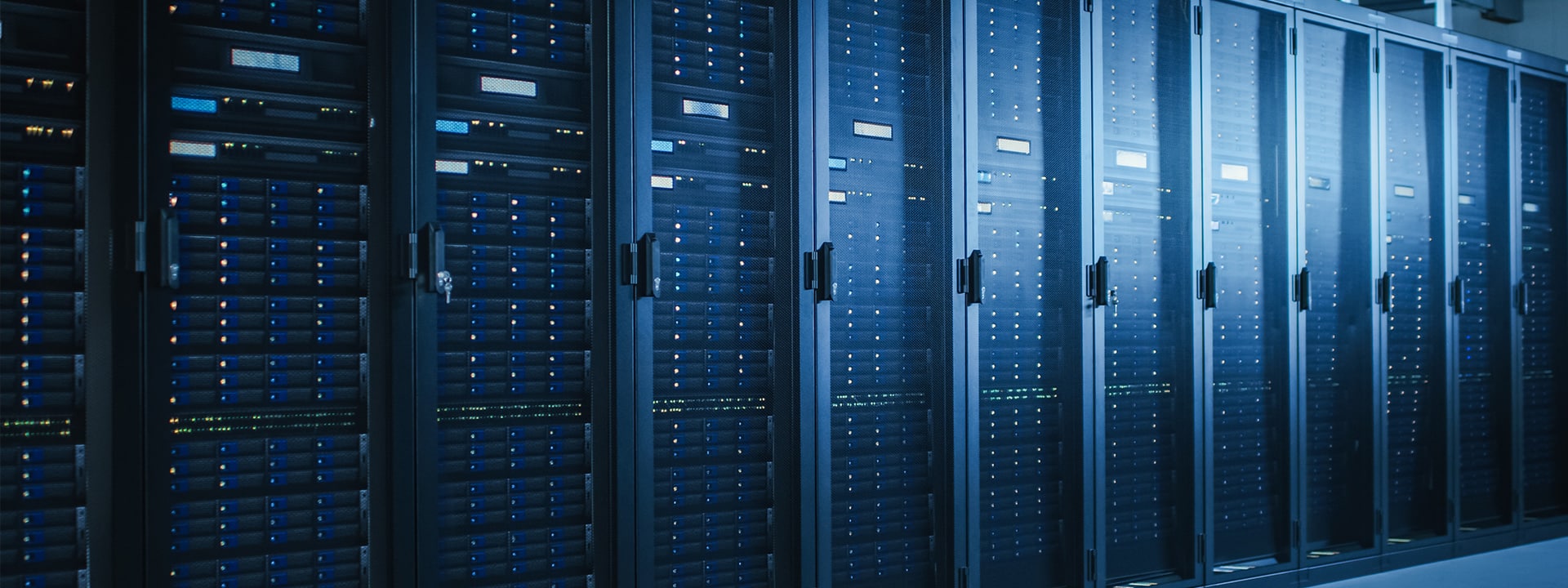Driven by public authorities, varying efforts over time, the development of new technologies, and growing environmental concerns, the renewable energy companies and power generating equipment, have matured significantly. The share of renewable energy sources (EnR) in the energy mix is expected to substantially increase. Our chartered accountants are specialized in renewable energies, and have in-depth knowledge of the issues specific to France.
Regulatory and strategic challenges in the renewable energy sector
In addition to cyclical changes, the complex regulatory environment and the unique characteristics of the sector’s business models present major challenges to renewable energy companies’ stakeholders:
- Securing financing for the development of power plants,
- Identifying opportunities for new project developments,
- Fostering innovation in terms of products and production processes,
- Continually improving the efficiency of power plants to win bids within the framework of multi-year investment plans,
- Adapting to regulatory changes such as tariff revisions resulting from Article 225 of Law No. 2020-1721 of December 29, 2020, or the regular updates of decrees establishing the regulatory framework for classified environmental protection facilities (ICPE installations).
Furthermore, beyond operational specifics, this sector is characterized by an accounting treatment based on a reasonably comprehensive accounting method, and also by tax, and legal peculiarities, which Houdart A&C specializes in. We not only operate as expert accounting specialists in renewable energies but also serve as auditors for production companies in the renewable energy sector.
Houdart A&C’s technical expertise in renewable energy accounting, taxation and legal matters
We are familiar with the legal and regulatory steps associated with setting up a renewable energy power plant, whether it’s photovoltaic or biomass energy sources.
Our expertise extends to common issues encountered in this sector, especially pertaining to taxation, particularly when dealing with complex financing of construction costs such as investment in fixed assets (i.e solar panels and wind turbines,..) These challenges include undercapitalization, tax optimization, tax consolidation, IFER (local taxes on energy facilities), VAT reverse charge, and more. Additionally, we possess specialized knowledge in accounting practices, such as recording interest during the construction of power plants, refinancing, and managing dismantling costs.
When our mission involves accounting expertise, we meticulously address the unique structure and potential holdings related to accounting, legal, and taxation aspects throughout the entire project’s lifecycle. We also manage relationships with French or foreign investment fund providers, auditors, and the production of periodic reports.
For our missions related to statutory audits, our sector-specific knowledge ensures a high level of technical service.
Renewable energies, a pivotal sector in the energy transition
Self-consumption and Smart Grids : Two Pillars of Renewable Energy Development
Renewable energies encompass natural energy resources that nature replenishes quickly enough to be considered inexhaustible on a human timescale.
The wind and photovoltaic sectors have witnessed a significant cost reduction, primarily attributed to industrial scaling.
Renewable energies are mainly solar, onshore or offshore wind, heat recovery or biogas.
Due to their decentralized and partially unpredictable nature, two major axes of renewable energy development have emerged: self-consumption and smart grids.
Self-consumption remains a niche market within photovoltaic energy: participating in a self-consumption mechanism involves avoiding the injection of excess energy back into the grid. Since 2020, the French Renewable Energy Association (SER) has actively advocated for the development of this management mode.
Smart grids are networks that integrate digital technologies, contributing to the improvement of its operation and the development of new uses such as self-consumption or storage. This digital layer complements the physical layer for energy transit and plays a decisive role in its management. Smart grids prevent overequipping production facilities and enable more adaptive utilization of resources based on needs and available resources.
Park development and call for tenders
The development and support of renewable energy sectors, particularly those whose capacity lags behind government targets, are central to the tendering system. Article L.311-10 of the Energy Code empowers the Minister responsible for Energy to utilize tendering processes to achieve objectives outlined in the multi-year investment program (PPI).
A regulated sector
The development of renewable energies is supported by the State, either upstream in the field of research and development, or in the industrialization phase to support demand and commercial deployment through calls for tenders, notably since 2013, while some pre-2011 facilities benefit from regulated purchase rates.
The Law on Energy Transition for Green Growth (LTECV), promulgated on 17 August 2015, outlines government objectives for renewable energy development, managed through the Multiannual Energy Programming (PPE).
Historical incentives implemented within the sector have undergone periodic adaptations to account for technical and economic developments. They are theoretically guided by the principle of ensuring that these technologies achieve the minimum profitability necessary for their deployment.
The European Commission adopted new guidelines on state aid for energy and the environment on 28 June 2014.
The government, considering the remuneration of certain producers excessive, unilaterally revised certain tariffs granted to photovoltaic installations through article 225 of the law no. 2020-1721 of 29 December 2020, Decree no. 2021-1385 and Order of 26 October 2021. Regardless the debatable method, this decree has raised several accounting concerns for the affected structures, as further elaborated below.
Tax peculiarities in the renewable energy production sector
Reverse charge of VAT
In cases where the supply originates from a permanent establishment located outside France and the place of supply is within France, the tax responsibility falls upon the purchaser, who is identified with VAT in France, in application of the 2 quinquies of Article 283 of the CGI. The VAT on the supply of gas, electricity, heat or cooling is therefore self-assessed by the purchaser.
The inherently VAT debtor nature of entities operating energy production facilities necessitates meticulous monitoring and justification of deductible VAT balances. The tax authorities often require such documentation when processing applications for VAT refunds.
IFER (flat-rate tax on network companies)
Introduced by the 2010 Finance Act for the benefit of local authorities and their public institutions (EPCI), the IFER is a flat-rate tax applicable to network companies. The IFER covers companies operating in the energy, rail transport and telecommunications sectors. This tax therefore applies to nuclear, thermal, photovoltaic, hydro or geothermal power plants. Each category of installation adheres to specific rules governing tax assessment and calculation.
CFE (Business Property Tax)
CFE applies exclusively to properties subject to property tax, and electric power plants fall under the category of industrial plants for CFE purposes. They are subject to a specific CFE calculation based on the rental value. This rental value is determined using a distinct method, as outlined in Article 1499 of the CGI , known as the “accounting method.” In addition to the CFE amount, there are administrative fees payable to the government.
Numerous disputes have arisen due to tax authorities contesting elements that constitute the CFE base for renewable energy power plants.
Specific operational arrangements for renewable energy production plants
Lease characteristics
The land right-of-way where the facility is located can take different forms. Typically, arrangements granting real rights are preferred for the financing of projects. When the operator is not the owner of the land, they usually opt for a long lease or a building lease. Both types confer real rights to the lessee. A key distinction between the two lies in the fact that a building lease obliges the lessee to construct the photovoltaic installation, whereas this obligation doesn’t exist in the emphyteutic lease, allowing the lessee to retain freedom in using the leased property.
If the project is situated on public land, only arrangements compliant with public domain regulations can be established.
Legal structuring
The prevalent scheme involves a promoter who develops energy production plant projects, intended to be executed by project companies (SPVs) where the promoter maintains a majority or minority stake. The development company oversees, on behalf of the project companies, the development, construction, operation, and maintenance of the parks. It possesses the necessary expertise to address various challenges and has the required technical, human, and financial resources.
Investors participate in the financing of the SPVs in exchange for an expected internal rate of return (IRR).
Financing and Undercapitalization
The significant financing provided by the development company or related entities to the SPV, through current account advances, subscription of convertible bonds, or related debts, necessitates vigilance regarding various interest deduction limits stipulated by the General Tax Code (CGI). Limits apply to rates and amounts, particularly in cases of undercapitalization of the financed structure.
Cost of dismantling and Restoration Obligation
The construction of a power plant, regardless of the energy source (wind, solar, biomass, etc.), alters the land’s layout. This immediate transformation of the site is considered a form of degradation, leading to the inclusion of the estimated future cost of dismantling and rehabilitating the site in the acquisition cost of the plant’s capital asset. This cost is recorded as a component and depreciated accordingly. In parallel, a provision for risk is documented and released as restoration work progresses.
In principle, the provision’s value should correspond to the present value of expected expenses, with a long-term maturity date.
Adjustments to the provision are necessary if there’s a revision of the initial cost estimate.
A chartered accountant or auditor specialized in renewable energy activities, such as Houdart A&C, will can guide you in determining and accounting for these obligations.
The tariff revision resulting from Decree 2021-1385 for photovoltaic installations
The revision of the tariffs granted to specific power plants as mandated by Article 225 of Law No. 2020-1721 of 29 December 2020, Decree No. 2021-1385 and the Order of 26 October 2021, necessitated detailed analysis by accountants or auditors. They must consider the impact on the financial statements of the affected structures.
In such a scenario, the real estate assets represented by the power plants may need to be depreciated if their current value falls below their net book value. This current value is determined as the higher of the market value or the utility value of the asset.
Establishing forecast budgets is necessary for the affected SPVs to assess the utility value of these assets after the tariff revision.
Similarly, holding companies that own SPVs must reassess the valuations of these securities to record any potential impairment.
The mechanism incorporates a safeguard clause that theoretically allows for adjustements to the level or effective date of the tariff reduction in cases where its normative application would compromise the economic viability of the producer holding the revised purchase contract.
As statutory auditors, it’s essential to thoroughly analyze the uncertainty in such situations to arrive at appropriate conclusions.
Common Questions Related to Renewable Energy Production Activities
What does Decree No. 2021-1385 of October 26, 2021 provide for photovoltaic energy ?
This decree pertains to the tariff revision of specific contracts supporting the production of electricity from photovoltaic sources, as stipulated by Article 225 of Law No. 2020-1721 of December 29, 2020. It applies to contracts concluded at regulated tariffs between 2006 and 2010 for parks with a peak power exceeding 250 kilowatts.
What is the difference between an emphyteutic lease and a construction lease ?
The main difference between an emphyteutic lease and a construction lease lies in the obligation of the lessee to carry out the construction in the latter case, whereas it is optional in an emphyteutic lease. A construction lease may also include restrictions regarding the use of the leased premises, and therefore the lessee’s activities.
How to declare IFER (Flat-rate tax on Network Compagnies) ?
Each category of facility eligible for IFER is subject to specific rules for calculating the tax base. The IFER follows the regime applicable to the CFE in terms of recovery, guarantees and privileges. IFER’s notice appears on the CFE tax notice for the relevant structures.
How to account for a provision for dismantling ?
It is necessary to distinguish between the case of progressive degradation (e.g., stone quarries) and immediate degradation (e.g., deforestation for a photovoltaic power plant).
In the case of progressive degradation, the provision is allocated through the income statement as and when the exploitation and therefore the degradation of the site.
In the case of immediate deterioration, a dismantling asset is recorded against a provision for risk. This asset is amortized over the lifespan of the plant, and the provision is taken over to the level of the restoration work carried out when it occurs.
Why choose a chartered accountant or a statutory auditor specialized in the new sustainable energies sector ?
The renewable energy sector is characterized by strong regulatory, tax, accounting, and legal specificities. Producing accurate accounting records and reports that provide reliable determination of production costs, establishing a balance sheet that reflects the economic reality of production structures, and compliance with regular and specific tax deadlines of the sector require a mastery of these particularities. The guidance of a chartered accountant provides you with advice, technical expertise, and support throughout the legal, accounting, and tax processes inherent to your organization and sector of activity. Choosing a statutory auditor who understands these issues ensures that, beyond the certification of accounts, they can assist you in implementing effective internal control measures and interpreting the legal provisions that govern the renewable energy sector.







